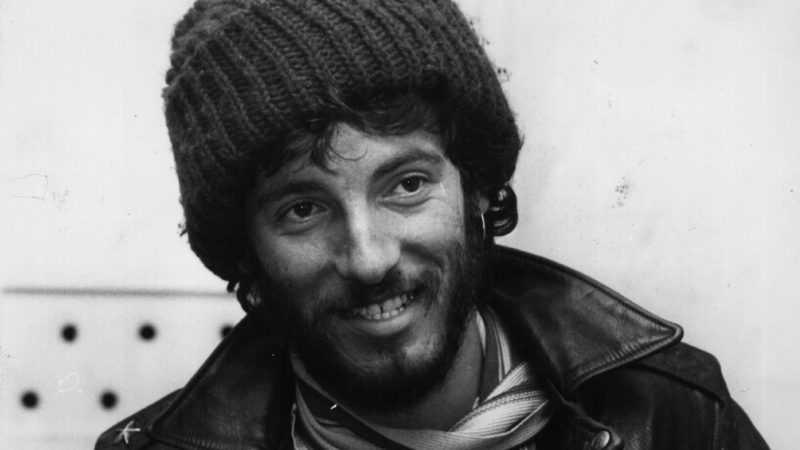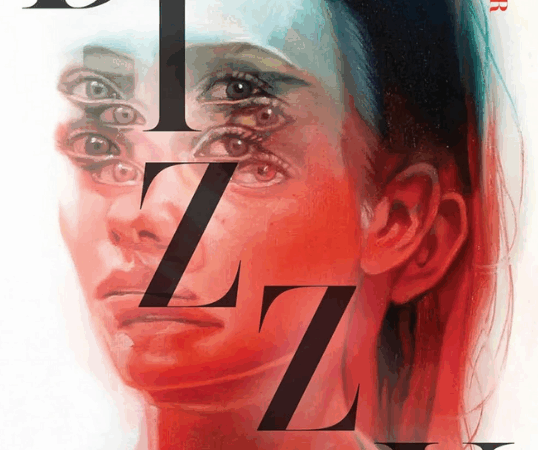Springsteen’s label was about to drop him. Then came ‘Born to Run’
Bruce Springsteen‘s groundbreaking album, Born to Run, came out 50 years ago this month, marking a turning point for rock and roll — and for Springsteen.
Before he recorded that album, Springsteen’s record label, Columbia, was on the verge of dropping him because his first two albums, though critically acclaimed, had sold poorly. Biographer Peter Ames Carlin describes the creation of Born to Run as an “existential moment” for Springsteen.
“If this didn’t work, he was done,” Carlin says. “And if he was done, who was he? What was he? Music was the only thing that he had really projected himself into. And it was everything to him. And the prospect of losing his career was terrifying.”
Carlin revisits the making of Born to Run in his new book, Tonight in Jungleland, which takes its name from the album’s final track. He says Springsteen “couldn’t leave any rock unturned” while writing the songs for the album, at times experimenting with strings and a choir. Ultimately, he composed the album on a piano instead of a guitar because it offered a “broader palette.”
“If you’re playing on a piano, on a keyboard, where all the notes are there in front of you, it changes the possibilities and the way that notes kind of string together,” Carlin says. “That was the vehicle through which he could bring to life the sounds that were beginning to play in his head.”
Released Aug. 25, 1975, Born to Run would go on to become a critical and commercial success. It propelled Springsteen’s career and, perhaps more importantly, helped solidify the musical voice that he would carry on for decades to come.
Carlin says that every year, Springsteen marks the anniversary of the album’s release by getting in his car and listening to the record while driving around his old stomping grounds in Asbury Park, N.J.
“And when he realizes it’s getting close to the end of the second side [of the album], he drives to the street where he used to live and the little bungalow he rented, and wrote those songs on the little piano he had there,” Carlin says. “And he parks outside that house and listens to ‘Jungleland.'”
Interview highlights

On the pressure Springsteen faced from his record company
The fellow who became the head of the artist and repertoire department [at Columbia Records] was named Charles Koppelman, and he had brought into the company, at the same time Bruce was signed, another outer-New York working-class type of pop songwriter named Billy Joel. And he heard a lot more potential in Billy Joel’s music than he did in Bruce Springsteen.
So after Bruce’s second album The Wild, the Innocent & the E Street Shuffle came out in the fall of 1973 and failed commercially as well, despite having rave reviews, Koppelman essentially said, “You know what, I think we’re going to cut bait on this Bruce Springsteen guy. He’s just not going anywhere.” But fortunately, there were enough advocates at the company to still the hand that was going to cut Bruce loose. And they gave him that opportunity to make one last song and to see if that could potentially be a hit single. So they sent him off to make one more song, which turned out to be “Born to Run.”
On a darker early version of “Born to Run,” called “Wild Angels”
It’s interesting because you can see Bruce getting at the feelings that underlie the finished song. But at first, he was working on this sort of gothic, almost horror story, written in this heavily symbolic language where the fast rebel driver gets run over by his own car. And then in a different version it’s like all of his heroes get run over by the car, roads are collapsing beneath their wheels and the beautiful surfer girl on the beach, who is the fast rebel’s girlfriend, dies of a heroin overdose. It’s a very dark and traumatic place to be. …
Eventually, as he began to clarify his vision, those same feelings, that feeling of being threatened, of living in a place that’s dying around you and needing to get out, he began to paint that in much more recognizable tones. Like, yes, this is modern America, New Jersey, circa 1974.
On Springsteen’s reaction when he heard the first acetate of the album
Someone came down with a reel-to-reel of the finished mix of the album, which they listened to, the whole band and Bruce and Mike Appel and the crew guys listening to it. And as the music unspooled, and this is the record we know, right? Bruce is suddenly hearing everything that’s wrong with it. All he can sense is the distance between what he’s hearing and what he imagined should be on the vinyl. And he just starts lashing out at everyone, like, “Oh, jeez, there’s the saxophone. That’s a cliché.” And he’s criticizing himself and everyone’s performance.
And the next day, [engineer/producer] Jimmy Iovine comes down from New York with an acetate of the mastered version of the album, which is what actually is going to get cut into the vinyl. They play it and Bruce just freaks out and he grabs the acetate and he storms back to the hotel and hurls it into the deep end of the swimming pool and essentially says, “We’re not putting this out. We are going to scrap this. We are going to start over again. We are gonna re-record all these songs when we play The Bottom Line in a couple weeks, just re-record the whole album live in front of an audience, because that’s where we’re at our best anyway.” But of course, Columbia wanted to have it out at the end of the summer, and all this promotional machinery was beginning to crank up. And so Bruce’s impulse was, I can’t stand this. As he told me, it made him feel itchy on the inside and the outside. And so he just was doing everything that he could to delay essentially that moment of truth.
People wonder, “Why is Bruce at 75 years old still on the road and playing all these shows?” … What he wants is to be the highest iteration of himself artistically, as a performer and just as a person.
Peter Ames Carlin
On why Springsteen keeps performing
He’s remarkably self-aware. And I think part of it is having spent the last 45 years in therapy, he has a really strong sense of where his motivations lie and what exactly it is that he’s doing on multiple levels, artistically, emotionally, creatively. People wonder, “Why is Bruce at 75 years old still on the road and playing all these shows? Like, he clearly doesn’t need the money.” Of course he doesn’t need the money. What he wants is to be the highest iteration of himself artistically, as a performer and just as a person.
Thea Chaloner and Susan Nyakundi produced and edited this interview for broadcast. Bridget Bentz, Molly Seavy-Nesper and Elle Mannion adapted it for the web.
Lindsey Vonn says she suffered ‘complex tibia fracture’ in her Olympic downhill crash
The 41-year-old star said her torn ACL was not a factor in her crash. "While yesterday did not end the way I had hoped, and despite the intense physical pain it caused, I have no regrets," she wrote.
Guerilla Toss embrace the ‘weird’ on new album
On You're Weird Now, the band leans into difference with help from producer Stephen Malkmus.
Nancy Guthrie search enters its second week as a purported deadline looms
"This is very valuable to us, and we will pay," Savannah Guthrie said in a new video message, seeking to communicate with people who say they're holding her mother.
Immigration courts fast-track hearings for Somali asylum claims
Their lawyers fear the notices are merely the first step toward the removal without due process of Somali asylum applicants in the country.
Ilia Malinin’s Olympic backflip made history. But he’s not the first to do it
U.S. figure skating phenom Ilia Malinin did a backflip in his Olympic debut, and another the next day. The controversial move was banned from competition for decades until 2024.
‘Dizzy’ author recounts a decade of being marooned by chronic illness
Rachel Weaver worked for the Forest Service in Alaska where she scaled towering trees to study nature. But in 2006, she woke up and felt like she was being spun in a hurricane. Her memoir is Dizzy.






